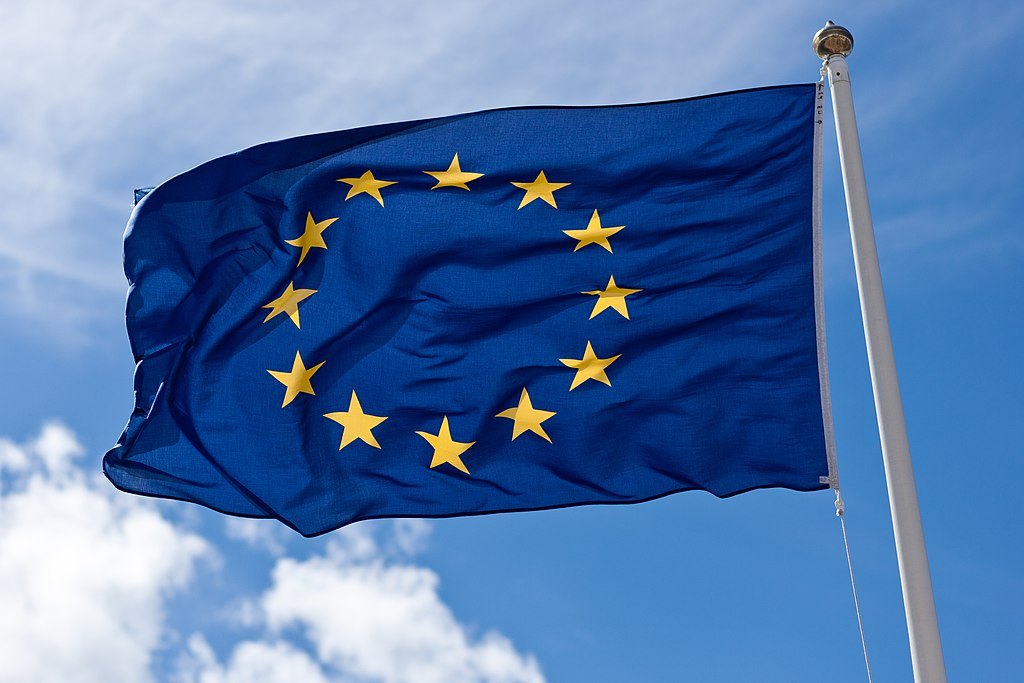A Sovereign European Union Must Answer to the People
The EU must bolster its democratic accountability. Now is the time.

Published by The Lawfare Institute
in Cooperation With

Recent events have exposed two key weaknesses of the European Union. First, Russia’s invasion of Ukraine illustrated the bloc’s dependence on countries outside of it in strategic areas such as energy and defense, prompting calls for greater “European sovereignty.” Second, the “Qatargate” influence-buying scandal and subsequent failure to make sufficient reforms laid bare the deficit of accountability in EU institutions, where decision-makers have scant requirements to faithfully represent the interests of citizens.
Although these defects may seem unrelated, they are in fact inextricably linked. Until the European Union’s representation problems are fixed, the bloc is unlikely to succeed in bolstering its sovereignty—as citizens will push back against Brussels’s perceived illegitimate power grabs. With European Parliament elections around the corner in 2024 and a more treacherous geopolitical environment highlighted by the war in Ukraine, waiting for this inevitable backlash is not an option.
Some observers may argue that the European Union is made up of representative democracies, which by providing their own democratic accountability, reduce the need for democracy in EU institutions. However, increasing EU sovereignty will require the bloc’s supranational institutions to take on larger roles, and member states may consequently need to relinquish more authority. As evidenced by Qatargate, these institutions sometimes struggle to provide accountability in their current forms. Therefore, as the EU seeks to expand its authority, it is imperative to examine how the EU can bolster its accountability by strengthening its democratic character.
Stephen Krasner’s sovereignty framework sheds light on the connection between the European Union’s sovereignty and its democratic accountability. In EU discourse, “sovereignty” typically refers to what Krasner labels “Westphalian sovereignty”—meaning “the exclusion of external actors from authority structures.” The European Council’s March 2022 Versailles Declaration, for instance, expressed its desire to build “European sovereignty” by reducing the bloc’s dependence on others with respect to energy, defense, and various sensitive economic sectors. This is certainly a worthy goal, since these dependencies could inhibit the EU from making decisions that serve its strategic interests during a crisis—as evidenced by the bloc’s initial reluctance to cut energy ties with Russia following its 2022 invasion of Ukraine.
Increasing the European Union’s Westphalian sovereignty requires transferring greater responsibility from national governments to the supranational level. This process represents an attempt by Brussels to build what Krasner labels “domestic sovereignty,” meaning its ability to “exercise effective control” within EU borders. Over the past year, EU institutions have assumed new authorities aimed at reducing strategic dependencies across various policy areas. These include unprecedented actions such as common debt financing of member states’ transition away from Russian fossil fuels, joint defense procurement, and directing member states to enhance the resilience of critical sectors such as transport, health, and digital infrastructure. These seemingly disparate changes reflect leaders’ growing concern over the European Union’s ability to navigate a contested geopolitical environment.
But while centralizing authority may be necessary for the European Union to act strategically, this centralization cannot be democratically legitimate without parallel efforts to make EU institutions more accountable to citizens. Unfortunately, such efforts have been sorely lacking. More than seven months after revelations that numerous members of the European Parliament (MEPs) accepted secret payments and luxury travel from the Qatari and Moroccan governments in exchange for voting for their political priorities, the parliament has failed to implement reforms that would seriously address the structural flaws in its transparency regime that lie at heart of the scandal.
Insufficient action to address its accountability deficit undermines the European Union’s Westphalian sovereignty and, consequently, its domestic sovereignty.
Failure to prevent foreign governments from interfering in EU authority structures makes a mockery of the bloc’s supposed desire for increased Westphalian sovereignty. If the EU is not willing to take decisive action to prevent external, corrupt influence, why should its citizens believe the bloc is genuinely committed to excluding external influence from regular decision-making in areas such as defense and energy? And more pointedly, if the EU drags its feet in addressing these corruption problems, why should it expect its citizens to support the bloc’s increased control over policies that have previously been under the control of member-state governments—especially in light of the deep-seated resistance to more robust EU influence in member-state politics?
If Qatargate has raised new doubts about the parliament’s democratic accountability, the outlook is even grimmer for the European Commission. While the commission has enormous and growing power in EU policymaking, the abandonment of the Spitzenkandidat principle in 2019 eliminated direct citizen input into the selection of the commission president. Although the EU needs a strong executive to thrive in an era of “permacrisis,” this executive must answer to the people they claim to represent.
One might argue that the European Council plays a leading role in EU governance and that the heads of states and government who make up the European Council are democratically elected and accountable. Both of those things are true. But as more responsibility is transferred to the commission, it becomes more important that the president of the commission, a critical component of the European Union’s decision-making apparatus, is also democratically accountable. Together, Qatargate and the elimination of the Spitzenkandidat system create the impression of an EU whose supranational decision-making bodies pay insufficient attention to representing the citizens whose will they are supposed to carry out.
Allowing its accountability crisis to fester will come back to bite the European Union, threatening the foundations on which its sovereignty-building agenda depends. According to recent Eurobarometer data, the most common reason cited by EU citizens who believe that member states have not benefited from joining the bloc is that “people have very little influence on decisions made at EU level.” Failing to convince citizens that their voices matter ahead of next year’s European Parliament elections could increase support for Eurosceptic political parties. Early polls already project an increase in seats for far-right and populist parties across the bloc. In the longer term, failures to make EU institutions more democratic—a key factor behind the 2016 Brexit referendum—could severely threaten the global authority of the European Union.
The European Union’s pursuit of greater sovereignty is in many respects comparable to the state-building process, and the literature on this topic further illustrates the perils of ignoring the bloc’s accountability crisis. Hanna Bäck and Axel Hadenius have found that the strength of a state’s democratic character significantly determines the state’s administrative capacity, while political scientist Mitchell Seligson has found that corruption has a statistically significant negative impact on perceptions of regime legitimacy. The implications for the European Union, with an unelected executive and a legislature tarnished by unscrupulous behavior, are unsettling.
Additional challenges will arise as the European Union pursues its plans of enlargement, which have gained new momentum in light of the war in Ukraine. Enlargement will likely add friction to the EU’s decision-making procedures, necessitating reforms that transfer more authority to the supranational level, such as increasing the use of qualified majority voting. Efforts toward enlargement have already begun to require supranational institutions—including the European Commission—to take on a more authoritative role. This trend makes ensuring democratic accountability at the EU level all the more critical.
Regardless of progress toward enlargement, large-scale institutional transformation must be the way forward. In the parliament, officials must show more ambition with post-Qatargate reforms by following through on previously expressed intentions, such as creating a stronger ethics body with investigative and disciplinary authority as well as strengthening enforcement of the EU Code of Conduct. In addition to holding MEPs to account, the EU should empower citizens to better express their will through the parliament by introducing transnational electoral lists and giving the parliament the right of legislative initiative. Meanwhile, the EU must increase the democratic legitimacy of the position of commission president. It could do this by enshrining the Spitzenkandidat principle into law. If EU leaders can muster the requisite political will, they can achieve many of these reforms now, though the most ambitious measures may require treaty change.
All too often, calls for more “European sovereignty” lack attention to the particulars. To be sure, increasing the capacity of the European Union to act in line with its strategic objectives by reducing its dependencies is a worthy goal, and the current progress toward meeting this goal deserves praise. But EU leaders cannot simultaneously ignore the risks, both practical and ethical, associated with continued centralization of authority in the absence of democratic reform at the supranational level. Doing so will result in a less sovereign European Union, driven less by its own interests than by those of outside powers.





